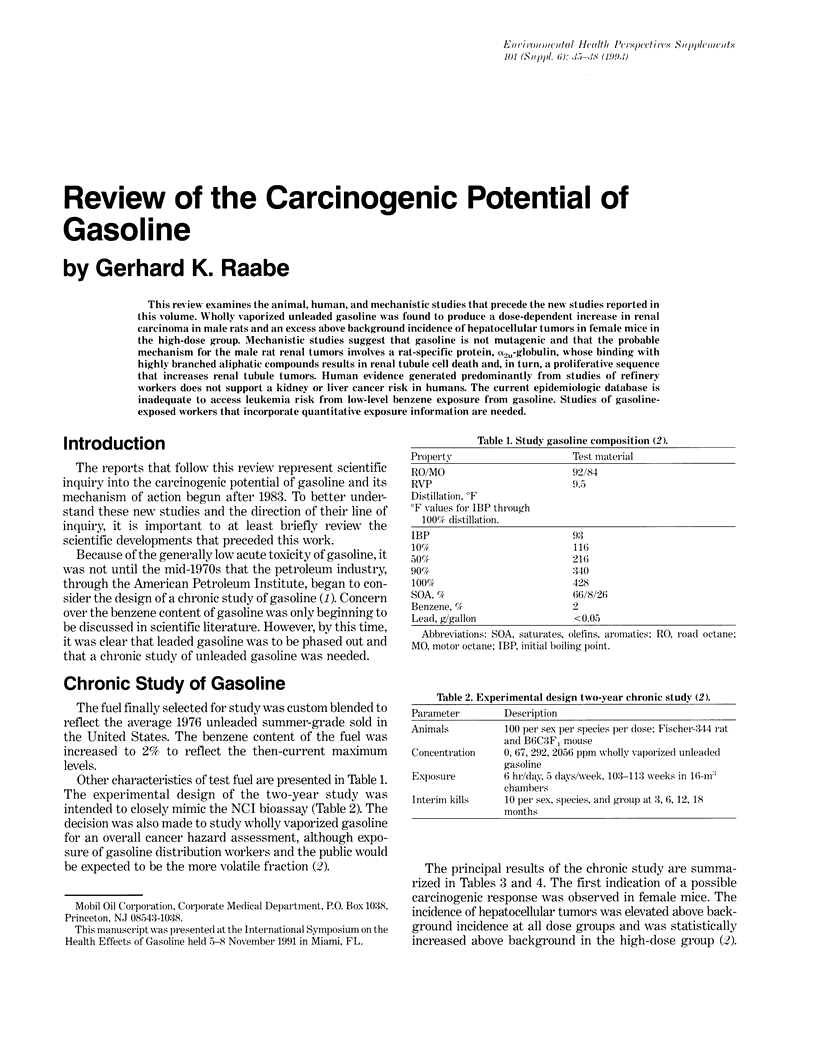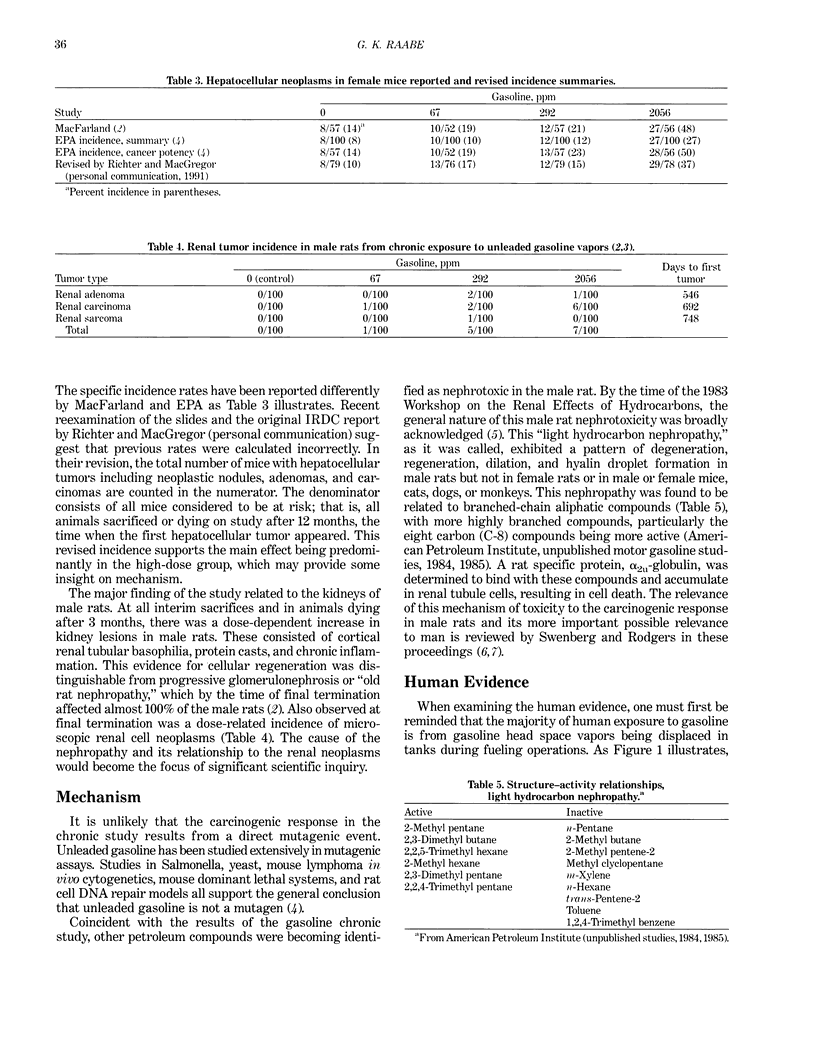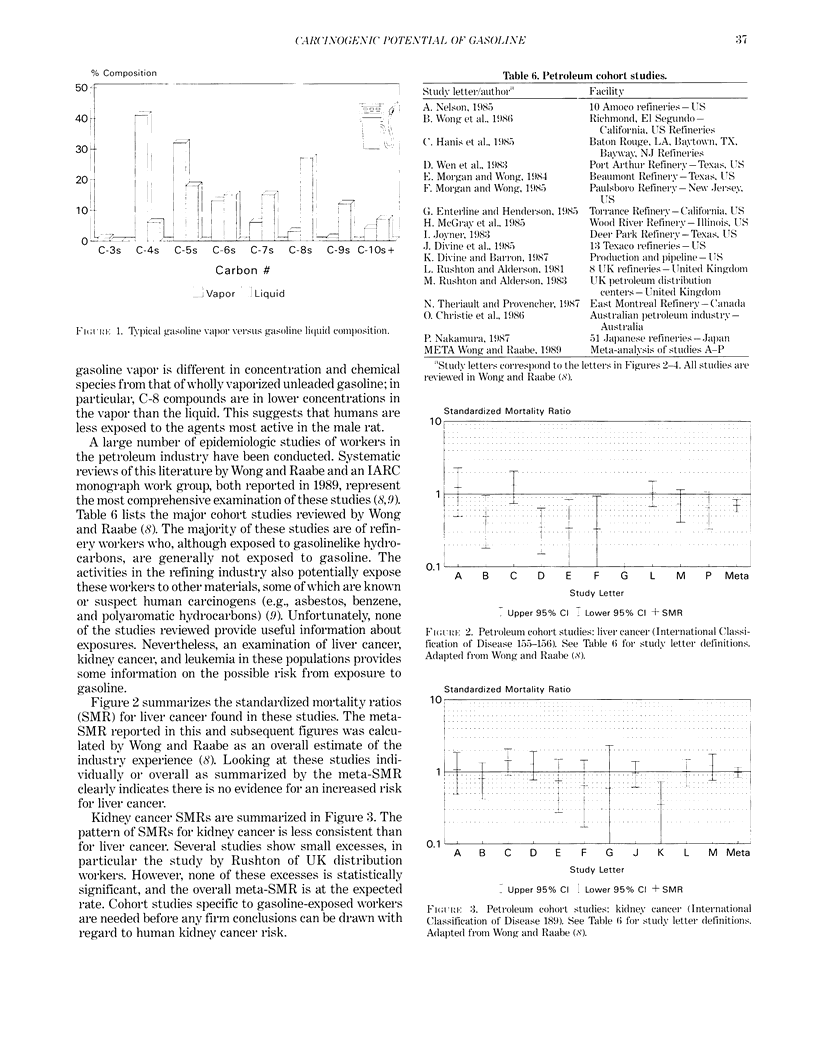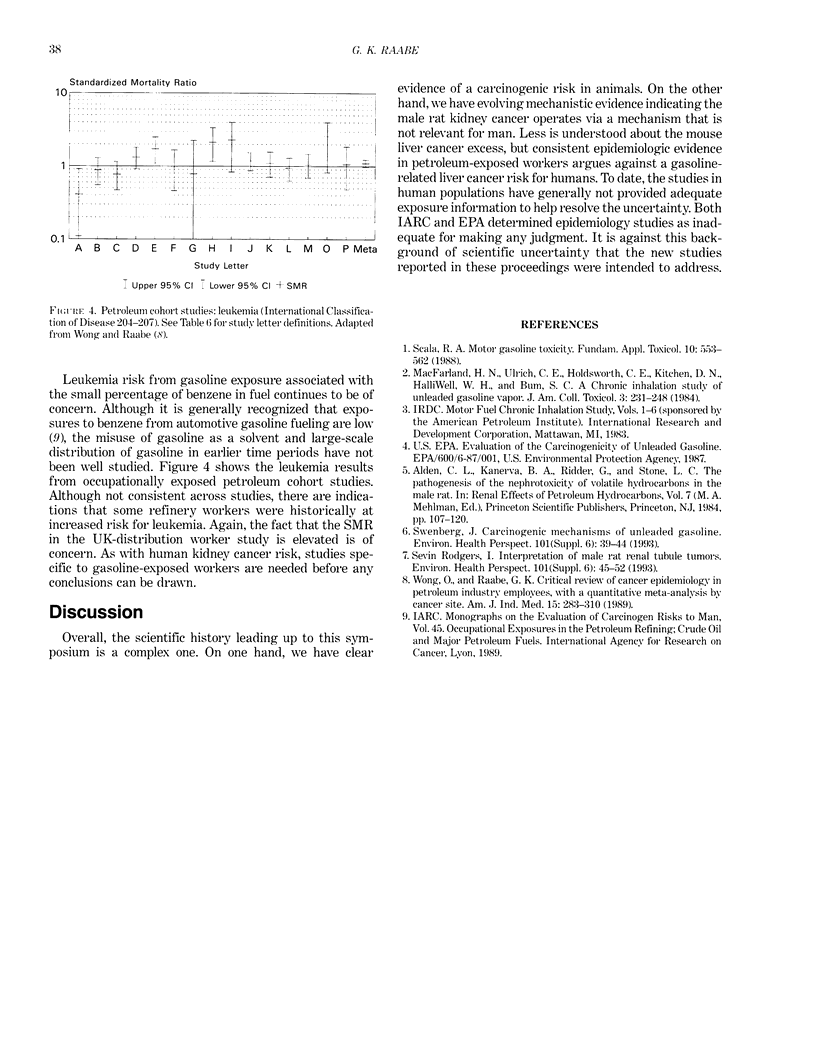Abstract
This review examines the animal, human, and mechanistic studies that precede the new studies reported in this volume. Wholly vaporized unleaded gasoline was found to produce a dose-dependent increase in renal carcinoma in male rats and an excess above background incidence of hepatocellular tumors in female mice in the high-dose group. Mechanistic studies suggest that gasoline is not mutagenic and that the probable mechanism for the male rat renal tumors involves a rat-specific protein, alpha 2u-globulin, whose binding with highly branched aliphatic compounds results in renal tubule cell death and, in turn, a proliferative sequence that increases renal tubule tumors. Human evidence generated predominantly from studies of refinery workers does not support a kidney or liver cancer risk in humans. The current epidemiologic database is inadequate to access leukemia risk from low-level benzene exposure from gasoline. Studies of gasoline-exposed workers that incorporate quantitative exposure information are needed.
Full text
PDF



Selected References
These references are in PubMed. This may not be the complete list of references from this article.
- Rodgers I. S., Baetcke K. P. Interpretation of male rat renal tubule tumors. Environ Health Perspect. 1993 Dec;101 (Suppl 6):45–52. doi: 10.1289/ehp.93101s645. [DOI] [PMC free article] [PubMed] [Google Scholar]
- Scala R. A. Motor gasoline toxicity. Fundam Appl Toxicol. 1988 May;10(4):553–562. [PubMed] [Google Scholar]
- Swenberg J. A. Alpha 2u-globulin nephropathy: review of the cellular and molecular mechanisms involved and their implications for human risk assessment. Environ Health Perspect. 1993 Dec;101 (Suppl 6):39–44. doi: 10.1289/ehp.93101s639. [DOI] [PMC free article] [PubMed] [Google Scholar]
- Wong O., Raabe G. K. Critical review of cancer epidemiology in petroleum industry employees, with a quantitative meta-analysis by cancer site. Am J Ind Med. 1989;15(3):283–310. doi: 10.1002/ajim.4700150305. [DOI] [PubMed] [Google Scholar]


